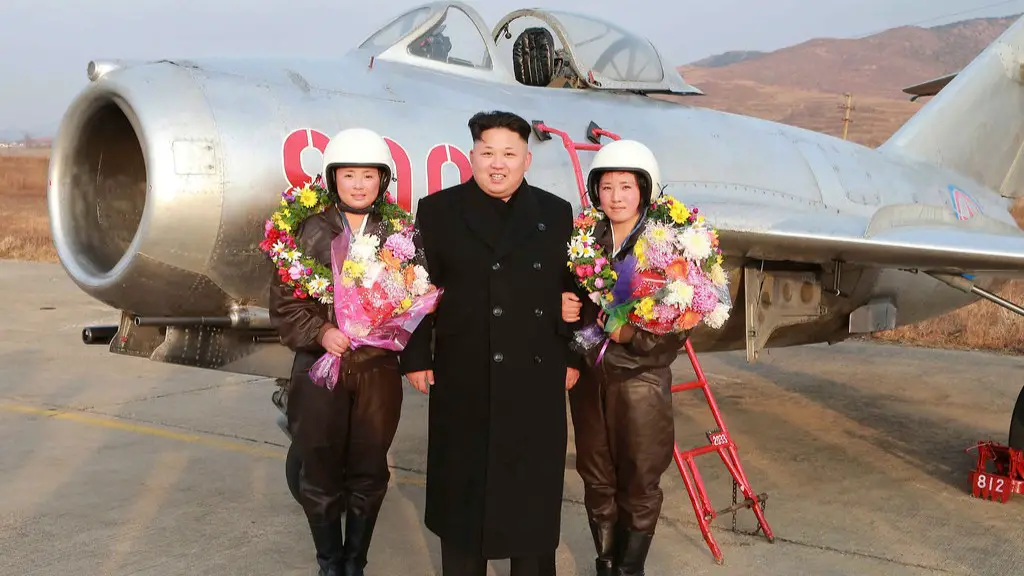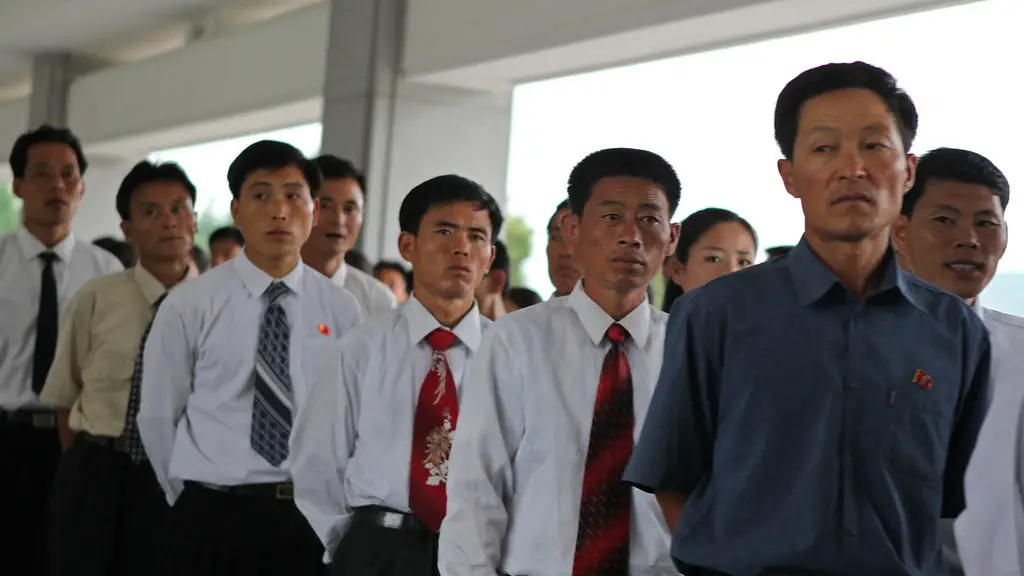Background
The Clinton administration’s willingness to engage with North Korea’s Communist regime presented an opportunity for the development of a historic agreement: the 1994 Agreed Framework. Under the Framework, North Korea was required to freeze its nuclear program in exchange for a range of economic and energy benefits. But did the Clinton administration give North Korea nuclear technology?
The accusation of North Korea receiving nuclear technology from the United States under Bill Clinton has been made by some conservative commentators, but there is no evidence to suggest this is true. In fact, the Clinton administration’s record on the issue of nuclear safety made it difficult for North Korea to accept the Agreed Framework. The Clinton White House was adamant that Pyongyang would not be able to develop nuclear weapons while under the Agreed Framework, and the United States refused to provide North Korea with nuclear technology.
Relevant Data
The Agreed Framework was an arrangement between the United States, North Korea and South Korea. Under the Framework’s terms, North Korea was to freeze its nuclear program and heavy fuel oil was to be supplied by the United States to provide an energy source. The Framework also required the two Koreas to begin negotiations on a peace treaty and the establishment of diplomatic ties.
In response to the Framework, North Korea allowed access to its nuclear facilities by international inspectors, but the United States did not provide North Korea with nuclear reactors or enrichment technology. The International Atomic Energy Agency (IAEA) provided North Korea with monitors, who had access to all nuclear facilities to make sure that North Korea honored its part of the Agreed Framework.
The Agreed Framework was later highlighted as a diplomatic success, as North Korea did not develop nuclear weapons while under its terms. However, many have suggested that North Korea’s leader, Kim Jong-Il, was able to use the Framework to appear more acceptable to the international community, while continuing to develop its nuclear program.
Analysis
The Clinton administration’s policy towards North Korea was a mixture of engagement and containment, and while the administration did not provide nuclear technology to North Korea, it did seek to build diplomatic ties with the Communist regime. The Agreed Framework was viewed as a success, as it did prevent North Korea from developing nuclear weapons while it was in place.
However, it was later revealed that North Korea had continued to develop its nuclear program in secret. This culminated in North Korea’s 2006 testing of a nuclear weapon, and the United States’ subsequent withdrawal from the Agreed Framework.
Experts’ Perspectives
Experts have noted that the Clinton administration’s decision to negotiate with North Korea was a consequential and far-reaching one. According to Joel Wit, who served as a special negotiator in the nuclear talks with North Korea, the Agreed Framework was a significant breakthrough. He has noted that it was a “remarkable achievement” for the negotiators to have convinced North Korea to accept a freeze on its nuclear program.
However, many have criticized the decision to engage with North Korea. Some have argued that the Clinton administration was naive in believing that North Korea would keep its word, while others have suggested that the Agreed Framework was flawed by not doing enough to ensure that North Korea would not develop nuclear weapons in the future.
Policies After Agreed Framework
After the failure of the Agreed Framework to prevent North Korea from building a nuclear arsenal, President George W. Bush adopted a more confrontational policy towards Pyongyang. This included public statements criticizing North Korea as a “rogue state” and the imposition of economic sanctions.
Following Bush’s departure, President Barack Obama adopted a policy of “strategic patience” towards North Korea that focused on diplomacy and negotiations. However, this policy did not yield much progress, as North Korea continued to develop nuclear weapons, and relations between the United States and North Korea remained distant.
Current Status
Since the Trump administration’s engagement with North Korea, some progress has been made to reduce tensions between the two countries, but no agreement on disarmament has been reached. The United States has been unwilling to provide economic incentives to North Korea in exchange for denuclearization, and North Korea has shown a reluctance to relinquish its nuclear weapons.
President Biden has taken a more hardline approach towards North Korea, imposing sanctions and denouncing its nuclear ambitions. His administration has also indicated that the United States will not pursue dialogue with North Korea while it continues its nuclear program.
International Agreements
Despite the lack of progress in the denuclearization of North Korea, some international agreements have been reached in recent years. In 2018, the two Koreas agreed to a historic summit, where they pledged to work towards improving diplomatic ties and to work towards a nuclear-free Korean Peninsula. In 2019, Donald Trump and Kim Jong-Un met in Vietnam, where they discussed the possibility of North Korea beginning denuclearization.
While these meetings have been hailed as significant steps forward, there has been no progress in North Korea’s disarmament. North Korea has continued to reject calls for denuclearization and continues to build its nuclear arsenal.
International Reactions
The international community has been largely united in its condemnation of North Korea’s nuclear program, but there is disagreement over how to achieve denuclearization. The United States and its allies have advocated for a policy of economic sanctions and threats of military action, while China and Russia have pushed for more diplomacy and negotiations.
Despite the differences in approach, there is a consensus among the major world powers that North Korea should not possess nuclear weapons. However, it is unclear if the international community will be able to persuade Pyongyang to give up its nuclear arsenal.
Sanctions
The United States has imposed a range of economic sanctions on North Korea in an effort to pressure it to denuclearize. These have included targeted sanctions on North Korean officials and businesses, as well as a partial ban on the export of luxury goods.
The sanctions have had some effect, as North Korea’s economy has suffered and some of its nuclear infrastructure has been destroyed. However, sanctions alone are unlikely to persuade Pyongyang to give up its nuclear weapons, and many have suggested that they should be combined with incentives and diplomacy.
Regional Security
The continued presence of North Korea’s nuclear program has had a significant impact on regional security. North Korea has used its nuclear arsenal to threaten its neighbors, and its development of long-range intercontinental ballistic missiles has raised the risk of nuclear conflict with the United States and its allies.
The lack of progress towards denuclearization has increased tensions in the region and has had a destabilizing effect on international security. It is unclear how the situation will develop in the future.
Human Rights Violations
Despite North Korea’s nuclear ambitions, the regime is mainly known for its extensive human rights abuses. The North Korean government has been accused of imprisoning and killing its citizens for political and religious beliefs, as well as a range of other abuses.
These human rights violations have been largely overlooked due to the focus on the country’s nuclear program. However, human rights activists have urged the international community to pay more attention to Pyongyang’s abuses and to take action to pressure the regime to improve its treatment of its citizens.


